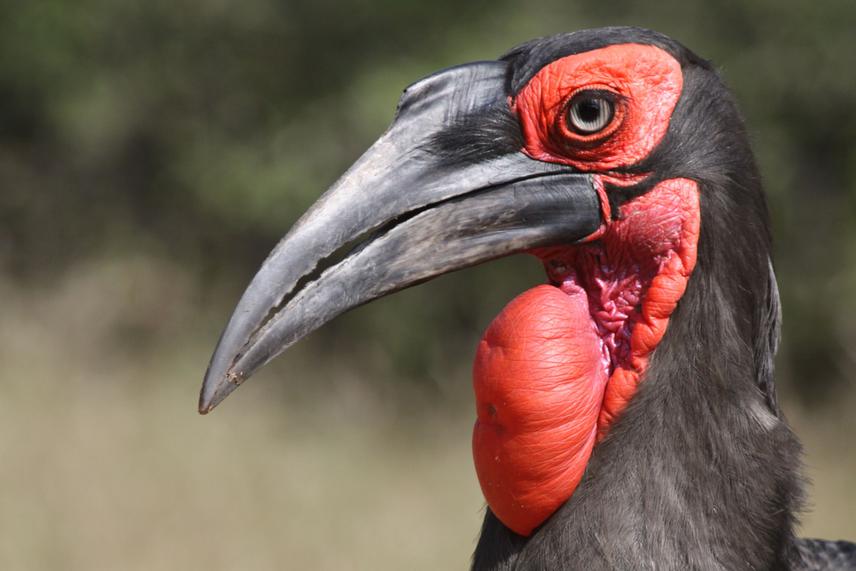Lucy Kemp
Other projects
8 Jan 2020
Trans-Disciplinary Conservation Combining Cultural Beliefs, Science and Technology for Population Restoration of the Endangered Southern Ground-Hornbill
To stabilize and then reverse the decline of the Southern Ground-Hornbill (Bucorvus leadbeateri), with the aim to achieve its conservation down-listing within South Africa, and to support other range-state conservation efforts.

The Mabula Ground Hornbill Project strives to slow and then reverse the decline of the Endangered Southern Ground-Hornbill within South Africa. The species faces a number of anthropogenic threats such as the loss of natural nesting trees, secondary poisoning, and persecution for territorial window-breaking, resulting in the need for a diverse range of mitigations. The project actively invests into the research and development of mitigation methods which can be utilised throughout the remaining range of Southern Ground-Hornbills. For example, to counter the lack of remaining nest trees, the project is testing a new design of artificial nest, which, if it is proven suitable, will allow them to produce an unlimited number on demand, and supply as many wild groups as necessary with a functional nest. Furthermore, after much experimentation the project have identified a collection of methods, such as contra-vision vinyl, to remove the reflection from windows, and thereby reduce the number of instances of territorial window-breaking.
The project also partakes in community engagement throughout the current and historic range, in the form of school outreach sessions, presentations and attendance of traditional council meetings, in order to maintain, understand and encourage the cultural protection surrounding the species.
In order to re-establish the population in areas of historical existence the project has developed a reintroduction plan, through which redundant, harvested, hand-reared chicks can be released into suitable habitat and successfully survive as wild groups, with the help of a wild alpha male.
Alongside the conservation work for the species, the project also values any opportunity or avenue for capacity building throughout the country, such as craft development and internships. The small team and their many collaborators are working tirelessly, in the hope that the outlook for such a unique bird will one day improve.